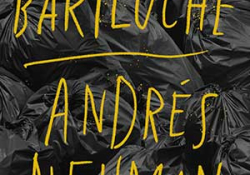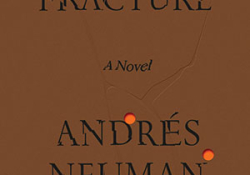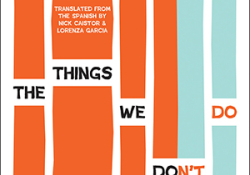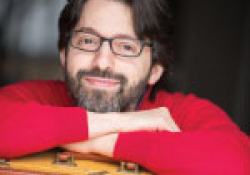Traveler of the Century by Andrés Neuman
Nick Caistor and Lorenza Garcia, tr. New York. Farrar, Straus & Giroux. 2012. isbn 9780374119393
 Andrés Neuman’s Traveler of the Century reflects Latin America’s “total novel,” brutally examining all aspects of society through diverse yet overlapping themes. It contemplates a myriad of subjects: investigating contemporary politics through the lens of history, the nature of belonging, memory, citizenship, aesthetics, language, love, dreams, time, and the performance of propriety, to name a few.
Andrés Neuman’s Traveler of the Century reflects Latin America’s “total novel,” brutally examining all aspects of society through diverse yet overlapping themes. It contemplates a myriad of subjects: investigating contemporary politics through the lens of history, the nature of belonging, memory, citizenship, aesthetics, language, love, dreams, time, and the performance of propriety, to name a few.
The story takes place in Wandernburg, a fictitious German city, during the early nineteenth century in the aftermath of the Napoleonic wars. The protagonist, Hans, an iterant literary translator, only intends to stay for the night. But he finds himself captivated by an old busker and the town’s eerie, transient geography. Built on the borderlands, Wandernburg has constantly shifted between Prussia and Saxony. Its streets, landmarks, and buildings are almost never oriented the same way two mornings in a row, making it difficult to leave.
Hans makes friends with the busker, called simply “the organ grinder,” and a Spanish businessman named Álvaro, who yearns for his fatherland but can’t seem to leave the strange vortex of Wandernburg’s charm. Hans becomes entangled in a clandestine love affair with a connoisseur of literature and closet feminist named Sophie. She is betrothed to a local business mogul with political connections.
The organ grinder is a wizened oracle. He searches flowers and dreams for signs, guiding Hans through his adventures with Sophie. Against this backdrop, Neuman simultaneously constructs the bare bones of a murder mystery.
Together, Sophie and Hans translate poetry and have immensely explicit sex. Through these escapades and regular salon debates between the city’s resident intelligentsia, Neuman discusses the intentions, failures, and aesthetics of the written word.
His characters fiercely examine the nature of cultural expression. During one such discussion Hans laments the state of historical novels: “These romances usually portray the past as either a rural idyll or a fake hell . . . Full of action yet empty of meaning.”
Neuman breaks free of these limitations and stereotypes. From his colloquial style of mingling dialogue and action, to graphic details, complex characters, and multiple perspectives from diverse social classes, Neuman’s acute realism grounds his historical novel firmly in the present. Yet the book still suffers from some of the same confines as its predecessors, saying so much that meanings often drown in a sea of words.
This is a book written for writers. The pages of garrulous dialogue contemplate classic literature, theater, and philosophy. The characters critique modern art and politics through indirect historical parallels. Neuman does not only trust the intelligence of his readers; he builds the story upon that foundation.
Traveler of the Century has been awarded some of Spain’s most prestigious literary prizes, including the National Critics Prize and the Alfaguara Prize.
Leigh Cuen
Tel Aviv




